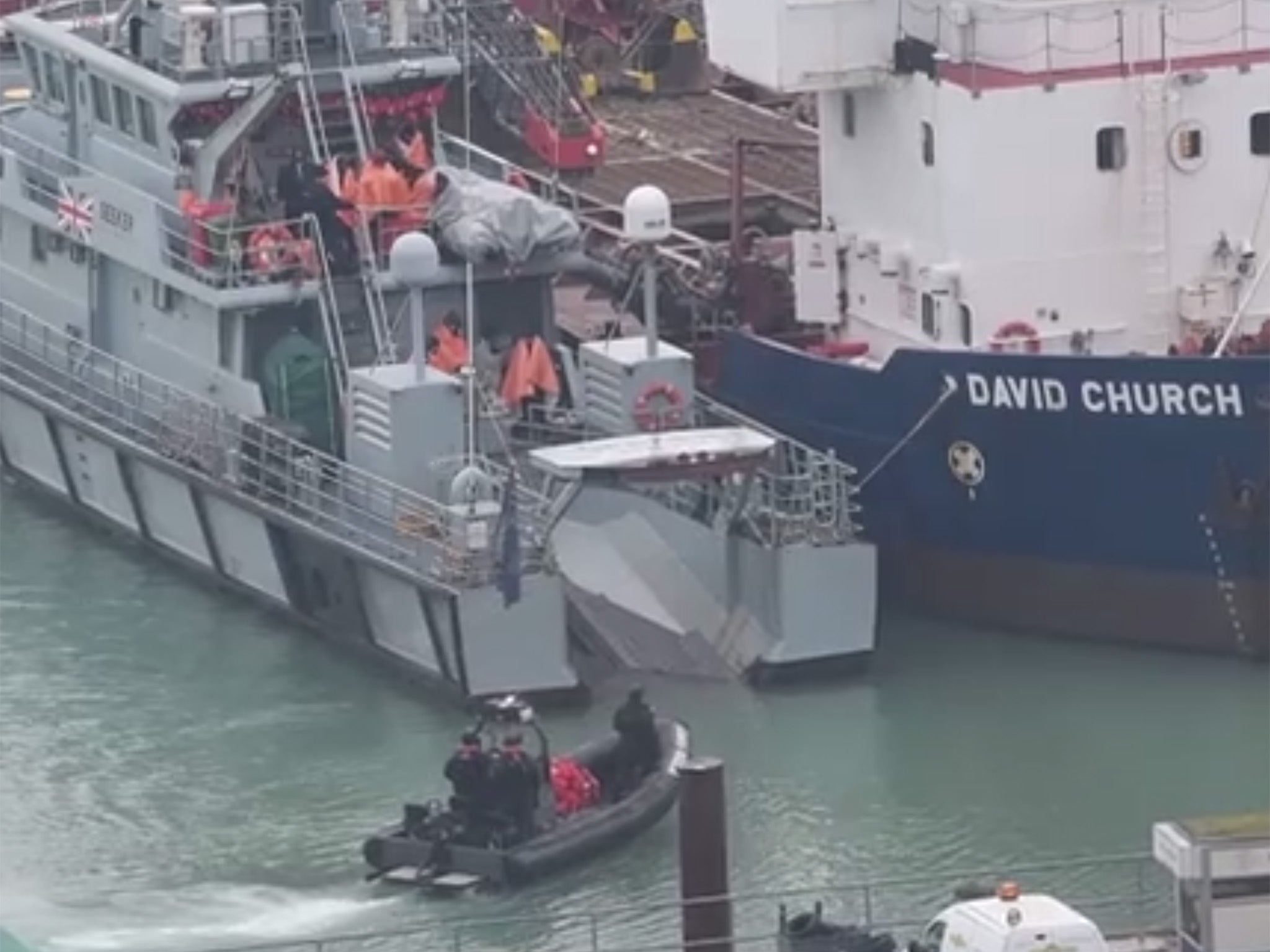Migrant boat arrivals increase six-fold in 2019 after UK paid France £6m to stop them
Home Office ‘assessing effectiveness’ of policy after 1,800 men, women and children arrive in small craft

Your support helps us to tell the story
From reproductive rights to climate change to Big Tech, The Independent is on the ground when the story is developing. Whether it's investigating the financials of Elon Musk's pro-Trump PAC or producing our latest documentary, 'The A Word', which shines a light on the American women fighting for reproductive rights, we know how important it is to parse out the facts from the messaging.
At such a critical moment in US history, we need reporters on the ground. Your donation allows us to keep sending journalists to speak to both sides of the story.
The Independent is trusted by Americans across the entire political spectrum. And unlike many other quality news outlets, we choose not to lock Americans out of our reporting and analysis with paywalls. We believe quality journalism should be available to everyone, paid for by those who can afford it.
Your support makes all the difference.The number of migrants reaching British shores in small boats has increased sixfold since the government paid France millions of pounds to reduce crossings.
A “joint action plan” signed in January 2019 saw the UK pay £6m for increased security along the French coast, but the number of arrivals has since rocketed.
An estimated 1,800 migrants have made sea crossings to England so far this year, compared to 297 in 2018.
That figure was declared a “major incident” by Sajid Javid last December, but the government has made little comment on the dramatic increase in arrivals.
Many more migrants have been intercepted by French authorities and turned back, while 125 people who arrived by boat in the past year have been returned to the European mainland.
Smugglers have also used lorry trailers, including one in which 39 Vietnamese people were found dead in Essex in October.
The government has continued increasing efforts to prevent migrants entering the UK despite warnings that its policies are fuelling smuggling and causing more people to risk their lives.
In the latest incident on Tuesday, 43 men, women and children were intercepted by the Border Force while crossing the Channel in three dinghies.
A fourth boat was returned to France as part of the same operation.
All launched under the cover of darkness, with the first vessel spotted at 3.30am, and those on board identified themselves as Iraqi, Iranian and Afghan nationals.
Eight migrants who said they were children are undergoing “age assessments”, while others were taken to Dover and transferred to immigration officials.
A Home Office spokesperson said: “Illegal migration is a criminal activity. Those who seek to come to the UK unlawfully and the ruthless criminals who facilitate journeys are all breaking the law and endangering lives.
“We will always ensure we have the right resources in place to keep our border secure. A Border Force cutter and two coastal patrol vessels are patrolling the Channel and we are monitoring the situation closely over the Christmas and new year period.”
The Home Office said patrols on French beaches had been doubled, with drones, specialist vehicles and detection equipment deployed to stop small boats leaving.
But it admitted it had been forced to assess the effectiveness of the joint French action plan, while immigration officials and the National Crime Agency are analysing intelligence on smuggling gangs.
The initial plan, agreed in January 2019, included more than £6m of British investment in security equipment, CCTV and surveillance on the French coast.
The Home Office said an “enhanced action plan” announced in October aimed to make “attempts to cross the Channel in small boats an infrequent phenomenon by spring 2020”.
It pledged that British and French authorities would increase intelligence-sharing on smuggling gangs, and engage “directly with migrants, to change their behaviour and deter them from making the journey to the UK”.
Many of those crossing the English Channel are leaving squalid camps in northern France that house migrants who initially reached Europe on boats from Libya and Turkey.
The UN Refugee Agency estimates that more than 19,000 men, women and children have died while trying to cross the Mediterranean Sea since January 2014.
In November, the Foreign Affairs Committee warned that the UK’s focus on closing borders “serves to drive migrants to take more dangerous routes and pushes them into the hands of criminal groups”.
MPs condemned ministers for allowing “dire conditions” suffered by migrants in northern France to continue, while instead ploughing money into increasing security and surveillance.
The report cited research carried out by the government itself that said crackdowns at French ports had caused an increase in small-boat crossings over the English Channel.
“Focusing on increasing border security without improving conditions in the region may have the counterproductive effect of forcing migrants to make desperate journeys across the Channel,” the committee concluded, urging the government to improve conditions in refugee camps and process asylum claims faster for those with relatives living in Britain.
But the Home Office ignored the call, instead threatening to deport more migrants who arrive on boats to Europe.
A spokesperson said: “Individuals who reach the UK illegally should be in no doubt about our determination to return them to Europe as it is an established principle that those in need of protection should claim asylum in the first safe country they reach.”
Join our commenting forum
Join thought-provoking conversations, follow other Independent readers and see their replies
Comments